- 90
- 295
Just had these sitting around so I’ll post. Basically Ricardo Lopez was obsessed with this islandic singer called Björk but I think didn’t like who she was seeing or something idk so anyway he mailed here an acid bomb which can be seen in the video (next to his cock) but anyway after he sent the bomb and shaved his head for some reason he just before committed suicide saying “This is for you” before shooting himself. Oh yea fbi found the tapes and contacted Scotland Yard and package was intercepted and safety detonated. Also Idfk how this site works so I’m gonna attempt to add images 

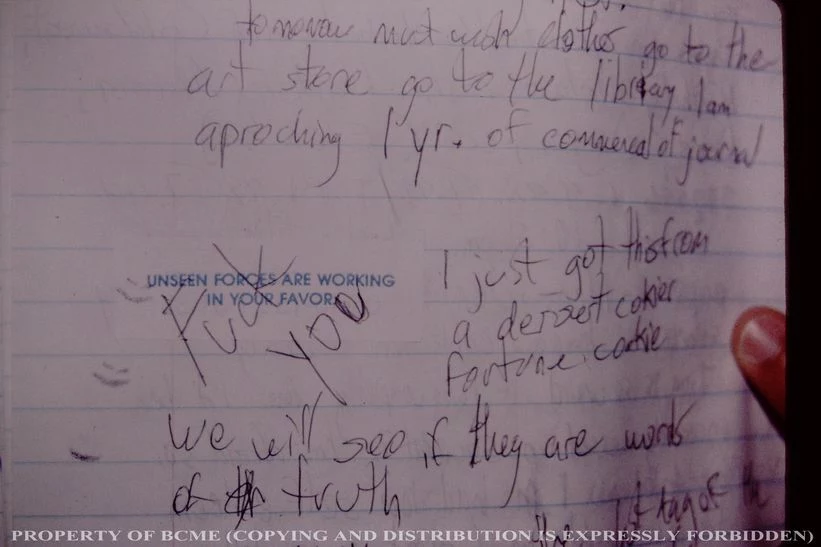
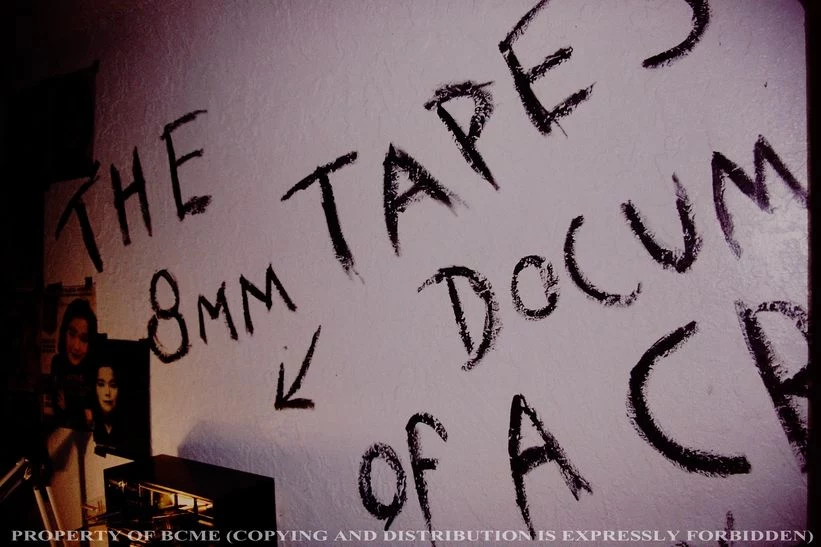
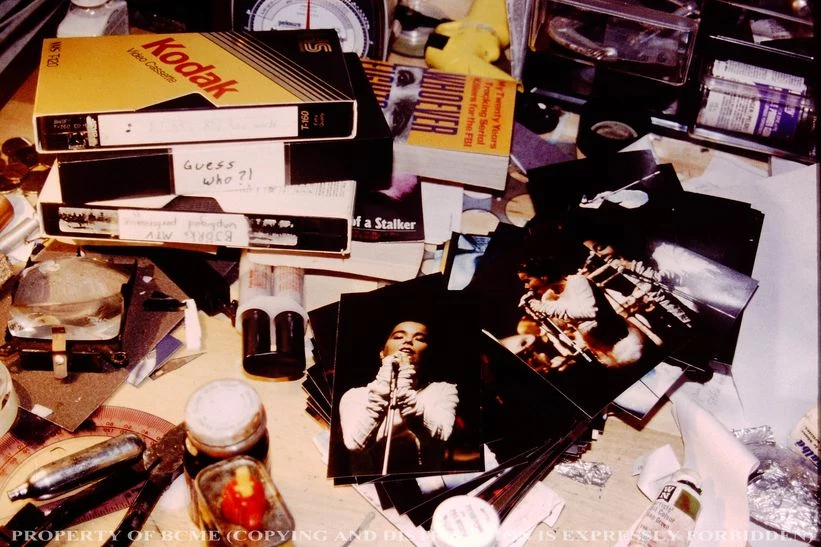
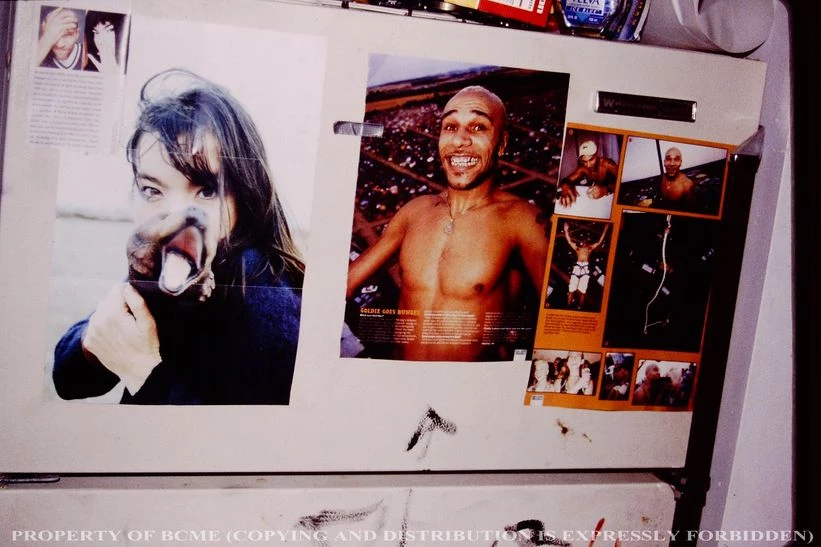

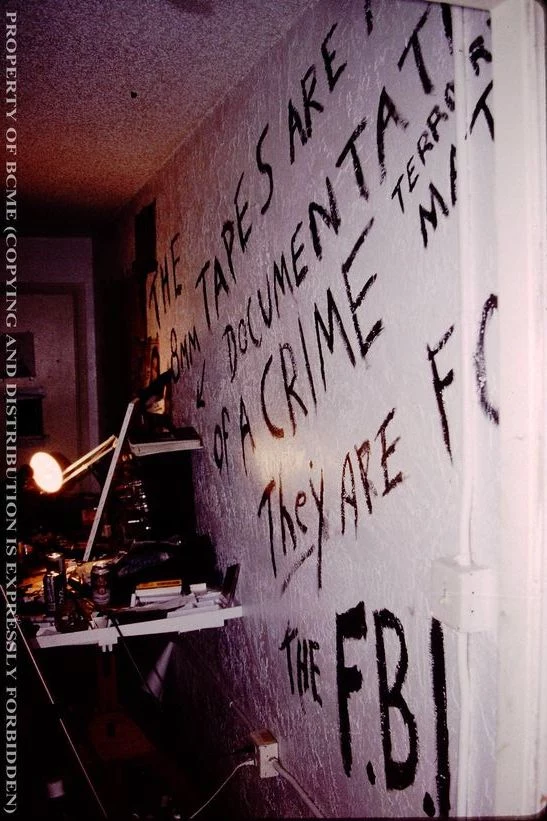 so I hoped those worked and if they didn’t I’ll put them in a.zip file. Oh I also don’t know if the body picture is real I can’t find a source. And for good measure I’ll send the police report aswell https://mega.nz/file/wlwSQYRZ#sxVQkPftoAj-jjolnUt1ch4iRR4YfWkOxedcQmK1fJ0 here’s wiki link for those more interested https://en.wikipedia.org/wiki/Ricardo_L%C3%B3pez_(stalker)
so I hoped those worked and if they didn’t I’ll put them in a.zip file. Oh I also don’t know if the body picture is real I can’t find a source. And for good measure I’ll send the police report aswell https://mega.nz/file/wlwSQYRZ#sxVQkPftoAj-jjolnUt1ch4iRR4YfWkOxedcQmK1fJ0 here’s wiki link for those more interested https://en.wikipedia.org/wiki/Ricardo_L%C3%B3pez_(stalker)
- 73
- 144
Info from Reddit:
He tied a buckle thing around his neck and choked for 5-10 minutes before stopping moving. The stream was taken down by youtube 10 minutes later with 30 viewers. He was known to be depressed for a long time and uploaded this video 9 days ago :
He is from the minecraft parkour community and uploaded videos of hard parkour maps from late 2015- early 2021.
He was a racist pedophile and had an active CP discord from as recent as one month ago.
His channel is: https://youtube.com/@ub3r
His minecraft profile: https://namemc.com/profile/ub3rl337z4ur.1
Original ban message from the server he played: https://prnt.sc/c8wBIWBKWSV1
Link to the stream (now deleted):
- 61
- 157
In 1986, Pennsylvania State Treasurer Budd Dwyer was convicted of bribery and was to be sentenced to 55 years in prison.
The day before his sentencing, Jan. 22, 1987, Dwyer held a press conference where he maintained his innocence. Some stations were carrying the event live.
At one point during the news conference, Dwyer pulled out a .357 revolver from an envelope and took his life in front of the cameras.
Robert Budd Dwyer
Robert Budd Dwyer (November 21, 1939 – January 22, 1987) was an American politician. He served from 1965 to 1971 as a Republican member of the Pennsylvania House of Representatives and from 1971 to 1981 as a member of the Pennsylvania State Senate representing the state's 50th district. Dwyer then served as the 70th state treasurer of Pennsylvania from January 20, 1981, until January 22, 1987.
Dwyer was born on November 21, 1939, in St. Charles, Missouri. He graduated in 1961 with an A.B. in Political Science and Accounting from Allegheny College in Meadville, Pennsylvania, where he was a member of the Beta Chi chapter of Theta Chi Fraternity. After earning a master's degree in education in 1963, he taught social studies and coached football at Cambridge Springs High School.
Initial Government Activity
A Republican, Dwyer became active in politics. He was elected to the Pennsylvania House of Representatives from the 6th district (although seats were apportioned by county before 1969) in 1964 and was reelected in 1966 and 1968. In 1970, while still a State Representative, Dwyer campaigned to become a Pennsylvania State Senator for the Senate's 50th district, and won. Soon after his victory he resigned as Representative and was sworn in as Senator in January 1971.
Pennsylvania Treasurer
After being elected two additional terms in 1974 and 1978, Dwyer decided to try for a statewide office and in 1980 campaigned for and won the office of Pennsylvania Treasurer that had been held by Robert E. Casey since 1976. He campaigned for a second and last term in 1984 and won reelection, defeating Democratic nominee and former auditor general Al Benedict.
(Budd Dwyer with fellow demon, Gerald Ford)
(Budd with the devil incarnate)
Bribery Scandal
From 1979 to 1981, before Dwyer was state treasurer, public employees of the Commonwealth of Pennsylvania overpaid millions of dollars in Federal Insurance Contributions Act taxes (FICA). As a result, the state required an accounting company to determine refunds for its employees. Dwyer awarded the no-bid $4.6 million contract to Computer Technology Associates (CTA), a California-based company, owned by John Torquato Jr., a native of Harrisburg, Pennsylvania, on May 10, 1984.
During early 1984, Dennis Schatzman, deputy comptroller of Pittsburgh Public Schools, noticed financial discrepancies in the CTA contract, and wrote to Pittsburgh school officials regarding these. Schatzman later contacted officials of the accounting company Arthur Young and Associates, who confirmed that the no-bid CTA contract was overpriced by millions of dollars. In June 1984 the Office of the Pennsylvania Auditor General informed the Federal Bureau of Investigation (FBI) of the alleged bribery that occurred during the awarding of the contract. During late July 1984, Janice R. Kincaid, a former CTA employee, released a sworn statement claiming that Dwyer awarded the contract to CTA because he was promised a $300,000 kickback by the company.
Dwyer's awarding of the CTA contract was investigated by federal prosecutors. Upon learning of this investigation, Dwyer rescinded the contract with CTA on July 11, 1984. Subsequently, Dwyer repeatedly attempted to stop, divert and forestall the investigation, stating that the U.S. attorney had neither the authority nor evidence to pursue prosecution. Dwyer later admitted to telling his staff to withhold request for proposal (RFP) information from the U.S. attorney and the FBI during the investigation. After being indicted by a federal grand jury, Dwyer was finally charged with agreeing to receive a kickback of $300,000 in return for awarding CTA the contract.
Dwyer stated that he offered to take a polygraph test but only on the condition that if he passed it, he would not be indicted. The state rejected Dwyer's offer. Prior to Dwyer's indictment, on October 22, 1984, a grand jury indicted Torquato, Torquato's attorney William T. Smith, Judy Smith, Alan R. Stoneman, and David Herbert. At Smith's 1985 trial, Smith, who was a friend of Dwyer's, testified that he did not bribe Dwyer, and instead that Torquato offered Dwyer a campaign contribution in return for the CTA contract, yet Dwyer rejected Torquato's offer. In contrast, Torquato testified that Smith offered Dwyer a $300,000 bribe in return for the CTA contract. Dwyer, acting as a defense witness for Smith at Smith's trial, denied that he was offered any contribution at all. In August 1984, Smith failed a polygraph test when he stated that he did not bribe Dwyer or any state official. However, prior to Smith's trial, on October 27, 1984 (four days after Smith's indictment), Smith confessed to offering Dwyer a bribe, and stated that Dwyer accepted this offer.
“ I met with Dwyer in his office and at the insistence of Torquato offered to give him $300,000 if he signed a contract with CTA LTD. Dwyer talked about $100,000 to him personally—$100,000 to his campaign committee—$100,000 to Republican State Committee. [Dwyer] was going to see Robert Asher in Montgomery County that weekend to talk to him about how this should be done.”
However, Bob Asher, the then Pennsylvania Republican Party Chairman, objected to this, and requested that the $300,000 be directed entirely to the Republican State Committee, since Asher "did not want Dwyer to go to jail".
Indictment & Trial
Dwyer, along with Asher, were indicted by a federal grand jury on May 13, 1986. In the hopes of reducing his twelve-year sentence resulting from his 1985 conviction, Smith testified on behalf of the federal government against Dwyer and Asher at their 1986 trial. Ultimately, Smith did not receive any reduction of his sentence for testifying against Dwyer (although his wife, Judy Smith, was granted immunity from prosecution). Before testifying against Dwyer, Smith passed a polygraph test.
It was revealed at Dwyer's trial that he sought and won approval for special legislation—Act 38 of 1984 (House Bill 1397)—that authorized him to recover the FICA overpayments, and that coded computer tape seized from CTA's office on July 6, 1984, showed that Dwyer was to receive a $300,000 pay-off for awarding CTA the contract. Moreover, Smith and Torquato's claims about Dwyer being bribed were corroborated by four independent and impartial witnesses, and Smith's testimony against Dwyer was virtually identical to written statements Smith made long before entering into a plea agreement. Additionally, FBI agents testified that Dwyer attempted to conceal his involvement with the scheme when, after learning of the FBI investigation, he erased the entry in his appointment book of the March 2, 1984, meeting with Torquato and Smith in which he was first offered a bribe.
Dwyer maintained that he awarded CTA the contract on the basis of his treasury task force recommendation, yet this conflicted with the fact that Dwyer personally managed all matters relating to the contract six days prior to awarding it to CTA. Furthermore, his task force's contribution merely consisted in the making of a single telephone call to David I. Herbert (the former State Director for Social Security, who controlled FICA recovery for Pennsylvania's public employees, and who was convicted subsequently for conspiring with CTA).
Dwyer awarded the contract to CTA—an obscure California-based company with three employees, little equipment, and little experience despite being informed in April 1984 by the major Pennsylvania-based accounting company Arthur Young and Associates, which had 250 employees and submitted a proposal on April 13, 1984, at least fourteen days prior to CTA's proposal, that they could perform the FICA recovery as fast as CTA for half the cost.
Charles Collins, Arthur Young's former management consulting director in Pittsburgh, testified at Dwyer's trial that Arthur Young and Associates, who, unlike CTA, had experience in identical tax recovery work, was prepared to negotiate the FICA recovery contract (that was half the cost of the CTA contract) and that Dwyer was clearly aware of Arthur Young's offer before committing the contract to CTA. Additionally, sixteen other competitors were willing to be considered for the FICA recovery contract and many had communicated with Treasurer Dwyer's office to request an opportunity to bid on the contract, yet Dwyer did not respond. Dwyer repeatedly stated that he awarded the contract to CTA as a result of his task force's recommendation on the basis of CTA's providing "immediate credit", yet the contract between CTA and Dwyer contained no information regarding CTA's ability to provide such credit. Moreover, Dwyer admitted that he did not mention the concept of "immediate credit" to Arthur Young and Associates when officials from the company asked why CTA was chosen instead of them. In contradiction to Dwyer's statements about awarding CTA the contract on the basis of their providing "immediate credit", Arthur Young and Associates were told that CTA got the contract since they first recognized that the overpayments could be recovered, and that they endorsed legislation that gave Dwyer the sole power to award said contract.
Dwyer denied any wrongdoing, stating that after the CTA contract was signed, Smith merely made a "generic" offer to help him with his campaign. Dwyer's lawyer spoke to the prosecutor, acting U.S. Attorney James West, asking him if he would dismiss all charges against Dwyer if Dwyer resigned as state treasurer. West refused the offer. He instead offered to let Dwyer plead guilty to a single charge of bribe receiving, which would have meant a maximum of five years' imprisonment, as long as he resigned from his office as Treasurer of Pennsylvania and cooperated completely with the government's investigation, but Dwyer refused and went to trial. At his trial, Dwyer did not testify, and his lawyer, Paul Killion, presented no defense witnesses since he thought that the government did not sufficiently prove its case. It is possible that Dwyer did not testify in his own defense since he did not want to be questioned regarding his involvement in a 1980 conspiracy involving his wife's business "Poli-Ed," and two Pennsylvania State Education Association (PSEA) employees. One of these employees was Dwyer's close friend and campaign manager Fred Mckillop, who was subsequently dismissed by the PSEA for his involvement with the scheme, and who later featured in a 2010 documentary about Dwyer. In this conspiracy, which was investigated by the office of the Pennsylvania Attorney General, Dwyer allegedly siphoned money from his campaign into his personal funds.
On December 18, 1986, Dwyer was found guilty on 11 counts of conspiracy, mail fraud, perjury and interstate transportation in aid of racketeering, and was consequently liable to a sentence of as much as 55 years imprisonment and a $300,000 fine. His sentencing was scheduled for January 23, 1987, to be performed by U.S. District Court Judge Malcolm Muir. One mail-fraud charge against Dwyer was dismissed by Judge Muir. One juror, Carolyn Edwards of Williamsport, found it emotionally difficult to convict Dwyer (and Asher) since they were men of "very high integrity ... they just made a mistake". Bob Asher, Dwyer's co-defendant, was sentenced to one year in jail. He later resumed politics and served as a Republican national committeeman for Pennsylvania.
Accounting company Levin-Horwath ultimately fulfilled the contract for $1,300,000, with slightly more than a third of the fee possibly being subject to rebate. If CTA were to have performed the recovery work, Pennsylvania would have lost $6,000,000.
Pennsylvania law stated that Dwyer could not officially be dismissed from office until his sentencing in January. Given this, Dwyer stated that until his legal appeal was resolved, he would continue as treasurer with a leave of absence without pay and would not resign before having the opportunity to appeal his conviction. In the interim, the treasury department would be managed by Deputy Treasurer Donald L. Johnson.
Dwyer continued to profess his innocence after being convicted, and on December 23 wrote a letter to President Ronald Reagan seeking a presidential pardon, and to Senator Arlen Specter seeking assistance with this effort.
The week of Dwyer's sentencing, Pennsylvania State Attorney General LeRoy Zimmerman and state prosecutors were investigating a provision of the Pennsylvania state constitution such that dismissal of a civil worker from office who has been convicted of a crime is "self-executing", thus, automatic upon that person's sentencing. A decision confirming this constitutional provision was expected on January 22, the day before Dwyer's sentencing hearing.
Public Suicide
Infamously, In a meeting in his home on January 15, 1987, Dwyer discussed the idea of a press conference with his press secretary James "Duke" Horshock and Deputy Treasurer Don Johnson. At the meeting, both Horshock and Johnson cautioned Dwyer not to use the conference to attack the governor or other individuals involved with his criminal conviction, and both suggested to Dwyer that he should have the conference at a location other than his office. Dwyer angrily rejected their suggestion, but nevertheless assured both men that he would not attack anybody involved with his conviction. He said that he would not announce his resignation at the conference, but rather thank his staff and friends. Both men left assuming Dwyer would ultimately resign at the conference, although Horshock had fears that Dwyer would violate his promise.
The next day, Dwyer visited his lawyer, Paul Killion, who told Dwyer to express repentance for his crimes. Dwyer responded by agreeing to change his "version of events", which was to be presented to Judge Muir at Dwyer's pre-sentencing conference scheduled for the afternoon of January 22. Dwyer later saw Killion again, gave him an updated "version of events", and stated that he would announce his resignation at the press conference, yet did not want Killion to attend the conference.
Dwyer wrote a letter to then-Senator, and later US president Joe Biden and Congressman Peter W. Rodino, who were at the time the chairs of the Senate Judiciary Committee and the House Judiciary Committee respectively, on January 20, asking them to conduct an investigation into the CTA affair, to reform the justice system in the United States, and if this is not done, to completely remove the word "justice" from everything related to the DOJ.
Dwyer finally reached U.S. Senator Arlen Specter by telephone on January 21, two days before his sentencing. A Specter aide stated that the two of them talked for eight to ten minutes. He then wrote personally to President Ronald Reagan asking for a presidential pardon. In his letter, Dwyer once again professed his innocence and stated that the concept of immediate credit was not understood by the uneducated, unsophisticated "rural" jury at his trial. The senator responded that this request to President Reagan was "not realistic" because the judicial process, including appeals, had not yet finished.
On the same day, Dwyer asked his press secretary Horshock and deputy press secretary Gregory Penny to schedule a news conference for the next day without telling them what he was to discuss. Horshock arranged the press conference for 10:30 a.m. EST the next day, January 22. The press secretary summoned dozens of reporters asking them to attend, and told them he did not know its subject.
Dwyer wanted to ban certain reporters from the press conference who he believed wrote biased accounts about him and even suggested that a guard should be in attendance to prevent entry to those who were not on his authorized list. Horshock, who was unconvinced about Dwyer's claims that he was being conspired against, objected, stating to Dwyer that he could not "use state government facilities to manipulate the free flow of information".
Before the press conference, acting U.S. Attorney West, who had secured the conviction against Dwyer, remarked that the Treasurer's decision to resign "sounds like the appropriate thing to do under the circumstances. It seems like it would save everybody a lot of time and aggravation." Similarly, Harrisburg Patriot-News reporter Kenn Marshall described the consensus among reporters: they would be attending to see Dwyer announce his resignation from his office. "My mission was to stay there until he said those words, then call in a new top for our story."
The night before the press conference, Dwyer wrote the following note:
I enjoy being with Jo so much, the next 20 years or so would have been wonderful. Tomorrow is going to be so difficult and I hope I can go through with it.
Dwyer's press statement
edit
The next morning, Dwyer went to his press conference as planned. Standing behind a large wood table that separated him from nine television cameras, four wire service photographers and about 20 television, radio and newspaper reporters, he began reading from a 21-page prepared text, while aides handed a 20-page version to the media. The final page was expected to be his announcement that he would resign from office.
Appearing nervous and agitated, Dwyer again professed his innocence and accused acting U.S. Attorney James West, FBI agents, U.S. District Court Judge Malcolm Muir, the media and others for abusing the justice system and ruining him. Dwyer stated that Attorney West purposely held Dwyer's trial not in Harrisburg but in Williamsport, due to it being located in Lycoming County, one of the most uneducated counties in Pennsylvania. Dwyer spoke out against the death penalty and expressed regret for voting in favor of it while he was in the Pennsylvania assembly. This speech lasted nearly 30 minutes, and approximately halfway through it, some of the gathered press began to pack and leave. Dwyer spotted this and interrupted himself to say, "Those of you who are putting your cameras away, I think you ought to stay because we're not, we're not finished yet."
Given the sensitive nature of portions of Dwyer's text, press secretary Horshock had considered interrupting him outright to stop him but concluded that he would hold his own press conference after Dwyer's. "I had to make it known that I was not aware of the content of the statement. I didn't want it to be thought that I wrote that for him."
Upon reaching the final page of his statement, which had not been distributed to the press nor press secretary Horshock in advance, Dwyer paused. "... and I'm on the last page now, and I don't have enough to pass out, but Duke [Horshock], I'll leave this here, and you can make copies for the people; there's a few extra copies here right now." Dwyer continued,
“I thank the good Lord for giving me 47 years of exciting challenges, stimulating experiences, many happy occasions and most of all the finest wife and children any man could ever desire.”
“Now my life has changed for no apparent reason. People who call and write are exasperated and feel helpless. They know I am innocent and want to help, but in this nation, the worlds greatest democracy, there is nothing they can do to prevent me from being punished for a crime they know I did not commit. Some who have called have said that I am a modern day Job.”
“Judge Muir is also noted for his medieval sentences. I face a maximum sentence of 55 years in prison and a $300,000 fine for being innocent. Judge Muir has already told the press that he felt "invigorated" when we were found guilty and that he plans to imprison me as a "deterrant" to other public officials. But it wouldn't be a deterrant [sic] because every public official who knows me knows that I am innocent. It wouldn't be legitimate punishment because I've done nothing wrong. Since I'm a victim of political persecution, my prison would simply be an American Gulag.”
“I ask those that believe in me to continue to extend friendship and prayer to my family, to work untiringly for the creation of a true justice system here in the United States, and to press on with the efforts to vindicate me, so that my family and their future families are not tainted by this injustice that has been perpetrated on me.”
“We were confident that right and truth would prevail and I would be acquitted and we would devote the rest of our lives working to create a justice system here in the United States. The guilty verdict has strengthened that resolve. But as we've discussed our plans to expose the warts of our legal system[,] people have said, 'Why bother? No one cares, you'll look foolish, 60 Minutes, 20/20, the American Civil Liberties Union, Jack Anderson, and others have been publicizing cases like yours for years and it doesn't bother anyone.'
At this time, Dwyer stopped reading from his prepared remarks, with the gathered press still waiting on his expected resignation. There was still a significant portion of the prepared text remaining, which detailed what he was actually planning to do, and it read as follows” (he did not read these comments to the crowd)
“I've repeatedly said that I'm not going to resign as State Treasurer. After many hours of thought and meditation I've made a decision that should not be an example to anyone because it is unique to my situation. Last May I told you that after the trial, I would give you the story of the decade. To those of you who are shallow, the events of this morning will be that story. But to those of you with depth and concern the real story will be what I hope and pray results from this morning—in the coming months and years[,] the development of a true justice system here in the United States. I am going to die in office in an effort to ' ... see if the shame[-ful] facts, spread out in all their shame, will not burn through our civic shamelessness and set fire to American pride.' Please tell my story on every radio and television station and in every newspaper and magazine in the U.S. Please leave immediately if you have a weak stomach or mind since I don't want to cause physical or mental distress. Joanne, Rob, DeeDee – I love you! Thank you for making my life so happy. Good bye to you all on the count of 3. Please make sure that the sacrifice of my life is not in vain.”
After deciding to break from his speech, Dwyer called to three of his staffers, giving each a sealed envelope with the insignia of the treasury department. The first envelope, given to Bob Holste, contained a letter addressed to then-Pennsylvania Governor Bob Casey, who had assumed office just two days earlier. The second, given to deputy press secretary Gregory Penny, contained an organ donor card and other related materials. The last, given to Deputy Treasurer Don Johnson, contained materials intended for Dwyer's family, including three letters: one for his wife Joanne, and one for each of his children, Rob and DeeDee (Dyan), and suggested funeral arrangements.
Freelance photographer Gary Miller, one of the reporters in attendance, described the scene at this time, stating: "It was just kind of a long-winded, sad event."
(Different POV)
After he had finished speaking and handing out the notes to his staffers Dwyer produced a manila envelope with a Model 19 .357 Magnum revolver in it.
Reporters David Morris of the Associated Press, Thom Cole of UPI and Gary Warner of afternoon newspaper The Pittsburgh Press were at the rear of the room, waiting for Dwyer to say he had resigned, so they could run down the hall to telephones to tell their editors they could publish pre-written stories and add Dwyer's direct quote. When Dwyer produced the revolver, the three ran into the hallway and shouted to a state police kiosk in the center of the long hallway that the treasurer had a gun.
Inside the room, people gasped, and Dwyer backed up against the wall, holding the weapon close to his body. Dwyer calmly said, "Please, please, please leave the room if this will... if this will affect you."
Among those who stayed, some pleaded with Dwyer to surrender the gun while others tried to approach him and seize the weapon. Dwyer warned against either action, exclaiming his last words, "Don't, don't, don't, this will hurt someone."
Dwyer quickly put the muzzle of the gun in his mouth and pulled the trigger, firing a shot through the roof of his mouth and into his brain. He collapsed on the floor, dead. Blood ran out profusely through the back of his head and through his nose.
Nine news cameras recorded the events. One of the cameras remained focused on Dwyer and captured close-up footage of the aftermath of the shooting; as his body slumped, blood streamed from the exit wound in the back of his head as well as from his nostrils and mouth. He died instantly from the gunshot shortly before 11:00 a.m. EST but was not pronounced dead until 11:31 a.m. An aide later stated that Dwyer's corneas were made available for transplant per his organ donation wishes, but that no other organs were usable by the time his body reached a hospital.[m Interment occurred at Blooming Valley Cemetery in Saegertown on January 26.
While the live footage was only shown on one station, many television stations throughout Pennsylvania broadcast taped footage of Dwyer's suicide to a midday audience. Philadelphia station WPVI (Channel 6) showed Dwyer pulling the trigger and falling backwards, but did not show the bullet path. During the next several hours, news editors had to decide how much of the graphic footage they wanted to broadcast. Many chose not to broadcast the final moments of the suicide and WPVI also chose not to show the gunshot a second time.
Many stations, including WCAU and Pennsylvania's Group W stations KYW and KDKA-TV, stopped the action just before the gunshot. However, the latter two allowed the audio of the shooting to continue with the stopped image. Group W's news cameraman William L. Martin and reporter David Sollenberger had a camera set up at the conference. They chose to broadcast the audio with a freeze-frame of the gun in Dwyer's mouth. Only a handful broadcast the unedited press conference. WPVI in Philadelphia rebroadcast the suicide footage in full on their 5:00 p.m. and 6:00 p.m. Action News broadcast without warning the viewers. That station's broadcast is a source for copies available on the Internet. WPXI in Pittsburgh is reported by the Associated Press to have broadcast the footage uncensored on an early newscast. In explaining the decision to broadcast, WPXI operations manager By Williams said, "It's an important event [about] an important man". Williams avoided broadcasting the footage in the evening newscasts, explaining, "Everyone knows by then that [Dwyer] did it. There are children out of school." However, in central Pennsylvania, many children were home from school during the day of Dwyer's suicide due to a snowstorm.
The moment of Dwyer's suicide did not appear on any national newscast. NBC Nightly News and CNN's coverage only showed Dwyer holding the gun and stopped before he placed it in his mouth, and CBS Evening News and ABC World News Tonight did not include any footage from the press conference in their reports.
Some older students joked about the event. A study of the incidence of the jokes showed that they were told only in areas where stations showed uncensored footage of the press conference. At least one reporter present at Dwyer's suicide suffered from being a witness: radio reporter Tony Romeo, who was standing a few feet from Dwyer, developed depression after the suicide and took a break from journalism.
Dwyer's mistrust of outgoing Republican Governor Dick Thornburgh was expressed in detail in his press conference statement.[62] The timing of Dwyer's press conference and suicide meant that Thornburgh was not empowered to appoint a Treasurer to replace him. Instead, this became the responsibility of Thornburgh's successor, Democrat Bob Casey, who had assumed office on January 20.
The letter Dwyer sent Casey stated, "By the time you receive this letter ... the office of State Treasurer of Pennsylvania will be vacant. I stress to you that I did not resign but was State Treasurer of Pennsylvania to the end." It also stated that Casey "will be the great Governor that Pennsylvania needs at this time in our history". He suggested his wife Joanne as his successor, describing her as "very talented, personable, organized and hard-working."
Governor Casey did not accept Dwyer's suggestion. Regardless of the events of January 22, the governor and legislature of Pennsylvania already expected Dwyer to either resign or be dismissed from office. As such, a deal had already been brokered wherein the next treasurer, a Democrat, would serve the remnant of Dwyer's term and resign at its end. This was G. Davis Greene Jr., who was appointed as the 31st Treasurer of Pennsylvania on January 23, 1987, the day after Dwyer's suicide.
In 2010, former U.S. attorney James West, who prosecuted Dwyer, affirmed Dwyer's guilt, stating that "the evidence against Dwyer was overwhelming and indisputable".
In his final press statement, Dwyer alleged that Governor Thornburgh along with prosecutor James West, engaged in a political vendetta against him, and that FBI agents had acted improperly in their investigation. After Dwyer's public suicide, the National Association of State Treasurers requested that Dwyer's allegations be reviewed by the Department of Justice. After a thorough investigation, the Justice Department's Office of Professional Responsibility exonerated attorney James West and everyone else involved in Dwyer's investigation and prosecution of any wrongdoing. The FBI also investigated Dwyer's claims regarding impropriety on behalf of FBI personnel. They ultimately found Dwyer's claims to be "lacking in substance and specificity" and warranting no further action. R.B. Swift, former Capitol reporter, noted that Dwyer's allegations were extensively investigated by journalists from both The Philadelphia Inquirer and the Associated Press, but no evidence was found to substantiate them.
Dwyer claimed that Governor Thornburgh sought revenge against him, since Dwyer had angered Thornburgh when he refused publicly to approve expense vouchers for Thornburgh's wife for a European visit, and, additionally, when he criticized Thornburgh's use of state police to chauffeur his son to school. In response, Thornburgh pointed out that prior to their European visit, the Thornburgh family had issued a press release specifically stating that Ginny Thornburgh would pay her own expenses. Upon their return to Pennsylvania, Mrs. Thornburgh "repeatedly requested" the Thornburgh staff to "advise her of the amount" to be reimbursed; however, Dwyer leaked this matter to The Philadelphia Inquirer in an attempt to "enhance his own image by embarrassing" Thornburgh and his family. Regarding the use of the state police, Thornburgh stated that "the security detail provided its services to all members of our household as the officers deemed necessary for our protection. We neither asked for nor questioned these services, which were no different than those provided to our predecessors." Thornburgh spokesman David Runkel dismissed Dwyer's allegations as being "paranoic", as did John Taylor, the former spokesman for Governor Bob Casey. Pennsylvanian journalist and author Brad Bumsted suggested that Dwyer's allegations against Thornburgh may have been an attempt to divert attention from his own criminal activity with CTA. Bumsted also stated that, in Dwyer's final press statement, Dwyer "offered no real evidence" that there was any conspiracy against him.
Dwyer's deputy press secretary Gregory Penny, who was handed an envelope by Dwyer at Dwyer's final press conference, stated that he was convinced that Dwyer, whom he had once defended, had been guilty all along:
Some of the individuals Budd associated with and surrounded himself; the reluctance to provide information to his press office when we tried to respond to reporters' questions during that time; the pleading of the 5th Amendment during Budd's trial by his top aide Budd's decision not to take the stand in his own defense during the trial; and Budd's decision to take his life rather than go to prison and continue fighting to prove his innocence — these are the things I thought about and that brought me to conclude that Budd was not innocent.
Since Dwyer died in office, his widow Joanne was able to collect full survivor benefits totaling more than $1.28 million (equivalent to about $3.3M in 2022), which at the time was the largest death benefit payment ever made by the Pennsylvania Municipal Retirement System. If Dwyer had been sentenced, state law would have prohibited the payment of his state-provided pension benefits. A spokesman for Dwyer suggested that he may have killed himself to preserve the pension benefits for his family, whose finances had been ruined by legal defense costs. Other statements made by some friends and family also suggest that this was Dwyer's motivation.
At a panel discussion for the documentary Honest Man: The Life of R. Budd Dwyer, Dwyer's sister Mary Kun stated that Dwyer had made the decision to kill himself prior to knowing he would lose his pension and thus his motivation for his suicide was not to provide financial assurance for his family, but rather to "sacrifice himself to help the system."
- 115
- 908
- 18
- 90
A Brazilian man hangs himself on Facebook live. While sad in itself, what makes the situation worse (or better depending on how you view it) is the complete lack of viewers. He died alone despite broadcasting his death to the world.
- 71
- 268
Daniel Victor Jones (April 15, 1958 – April 30, 1998)
was an American man who committed suicide on a Los Angeles freeway in 1998. The incident was broadcast on live television by news helicopters. Jones committed suicide as a form of protest towards health maintenance organizations after he had been diagnosed as HIV-positive several months earlier.
By the end of April 1998, Jones believed he was going to die and so he decided to take his own life in a way that would draw publicity to his situation. He believed it was no one's fault other than his own for getting himself into his situation. Jones would later be quoted as saying, "I'm not happy with what's happening to my situation and I'm going to draw attention to it whichever way I can. My paramount goal is for no one other than myself to get hurt."
- 139
- 356
The mother also jumped by throwing the 2 children into the well, VIDEO: First she gave water with her hands, then threw both of them down one by one; death of three
A heart-wrenching incident was witnessed in Bikram area of Patna on Sunday afternoon. A woman committed suicide by jumping herself after throwing her two children into a well. All three died. The local people informed the Bikram police station. The police station in-charge reached the spot with the team and then the bodies of the woman and both the children were taken out from the well.
Her name was Nisha Kumari, age 27 years. The elder son was three years old Ankit while the younger son was one and a half year old Ayush. Nisha's in-laws are in Rampur, Naubatpur and maternal uncle is in Rani Talab near Dulhin Bazaar.
The big thing is that the place where Nisha jumped into the well in Bikram is about 13 kilometers away from her in-laws' house. Nisha's husband's name is Neeraj Kumar. Her family members have not told the police any reason, but have spoken about a quarrel with her husband over some matter.
- 167
- 573
ZAPADNYI, RUSSIA Security cameras on the street recorded the impact of the suicide jumper. She decided to take her own life after an argument with her boyfriend. In the video, her boyfriend can be heard demanding that she open the door for him. A random passerby tried to grab the woman with his backpack. It didn't help. The woman suffered serious injuries, which she succumbed to shortly afterwards.
- 212
- 375
impact at 0:22
more info:
https://www.thesun.co.uk/news/13959360/baby-crushed-death-man-jumps-building-pram
(thanks @xkcdHatGuy)
- 194
- 657
fall at 2:00
Investigations indicated that the girl fell from the last floor of the hotel onto the hotel restaurant located on the third floor, a dead body, noting that the girl is 26 years old, holds a bachelor's degree in tourism and hotels, and resides in the Aviation City in the Nasr City area, and has been working at the hotel for several months.Investigations added that the Boulak Abu El-Ela Police Department in the Cairo Security Directorate received a report that a girl had fallen from the last floor of a famous hotel on the Nile, leading to her death. A force from the department moved to the scene of the incident, and the body was transported to the morgue. A report was drawn up regarding the incident. It was found that the deceased was suffering from a mental illness after separating from her husband.




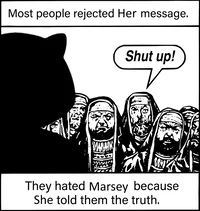 by his crush, so he shoots her, and then himself
by his crush, so he shoots her, and then himself 
 please
please  let me know
let me know


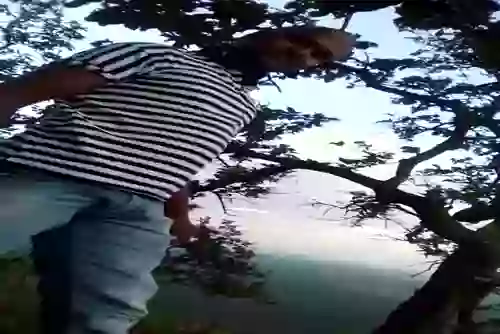









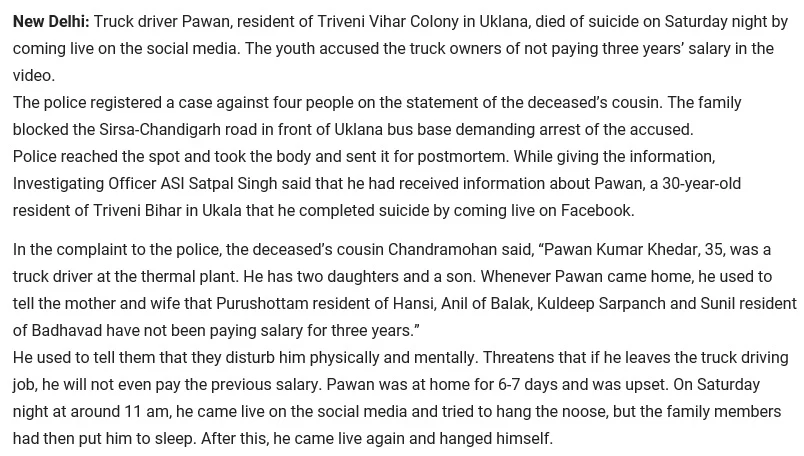
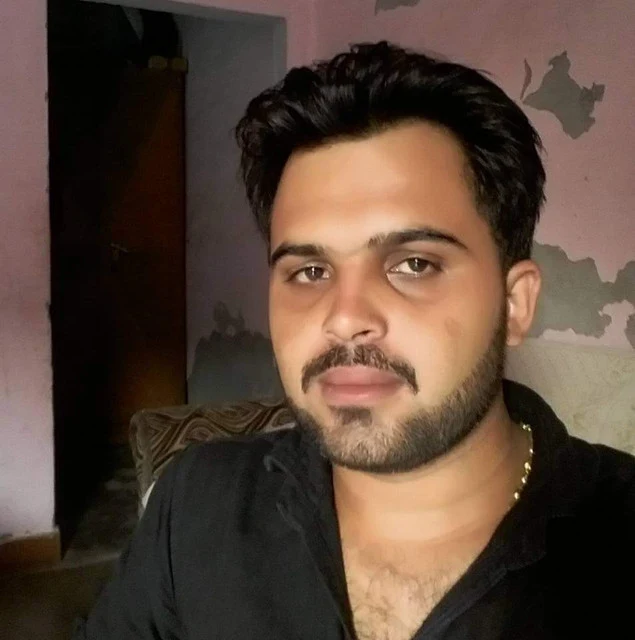
























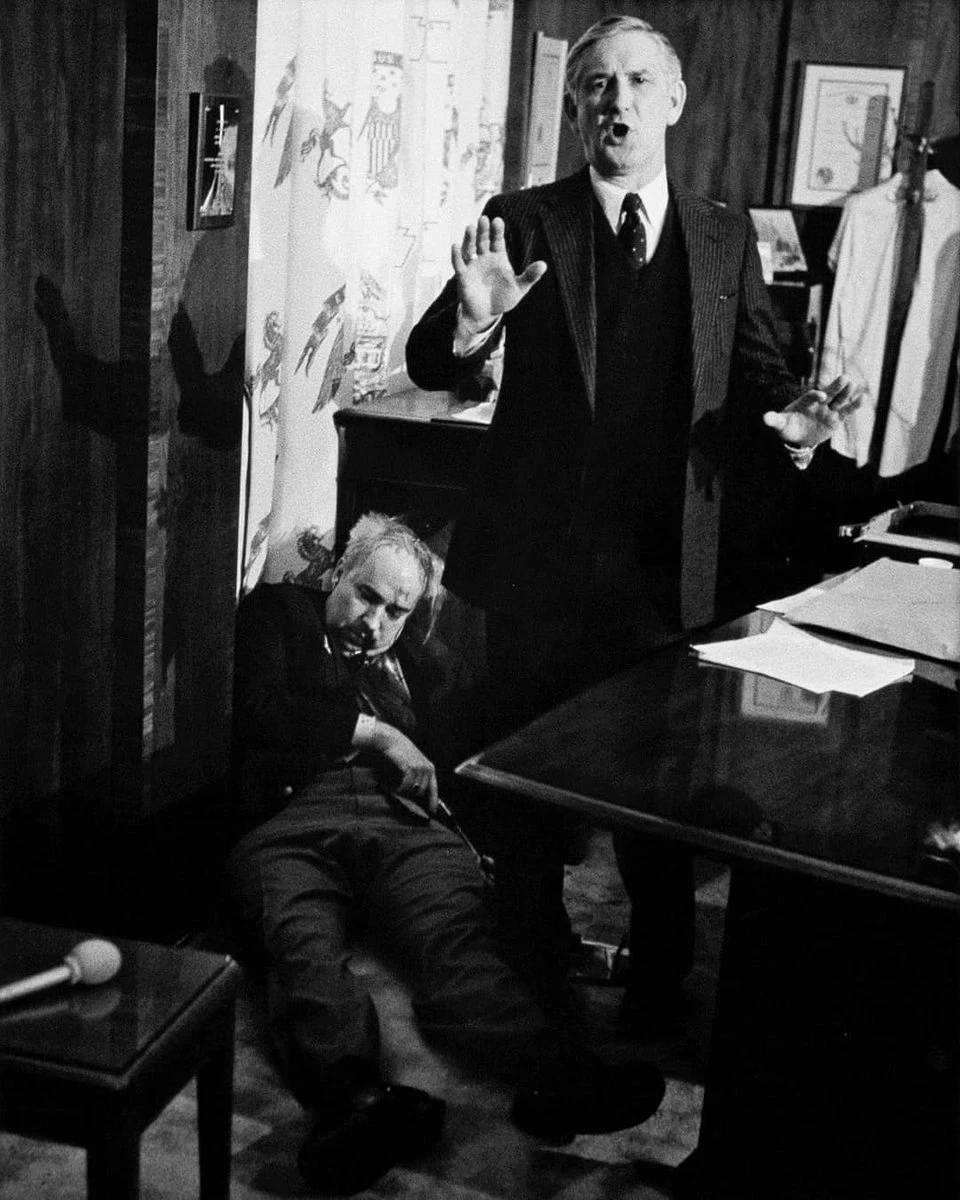














 We all go a little mad sometimes...
We all go a little mad sometimes...





















 Slavshit
Slavshit

 Sandshit
Sandshit
